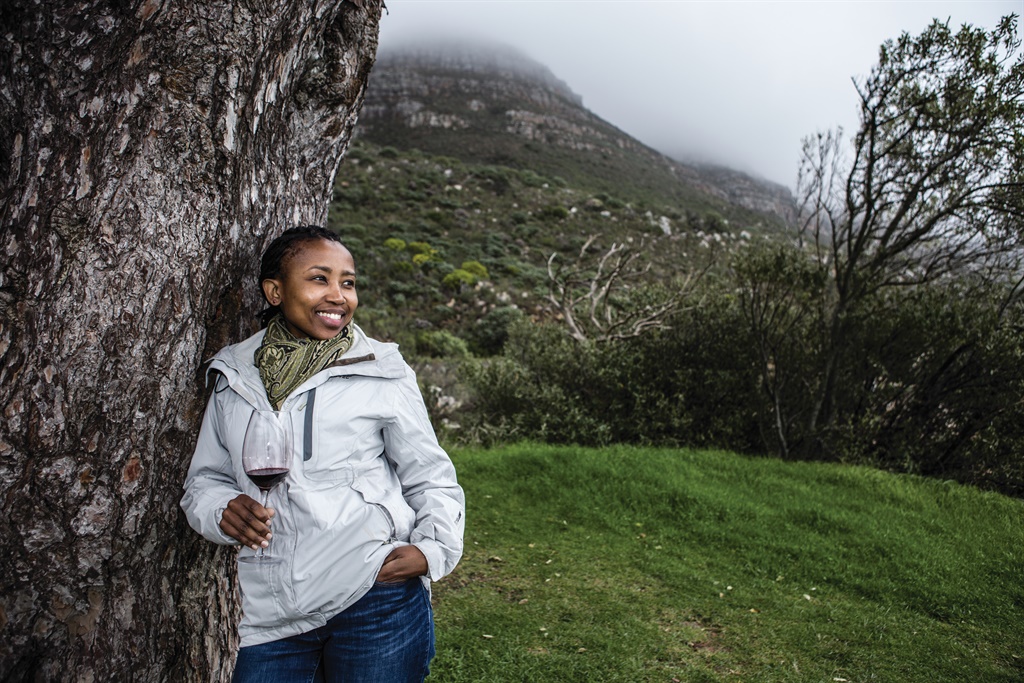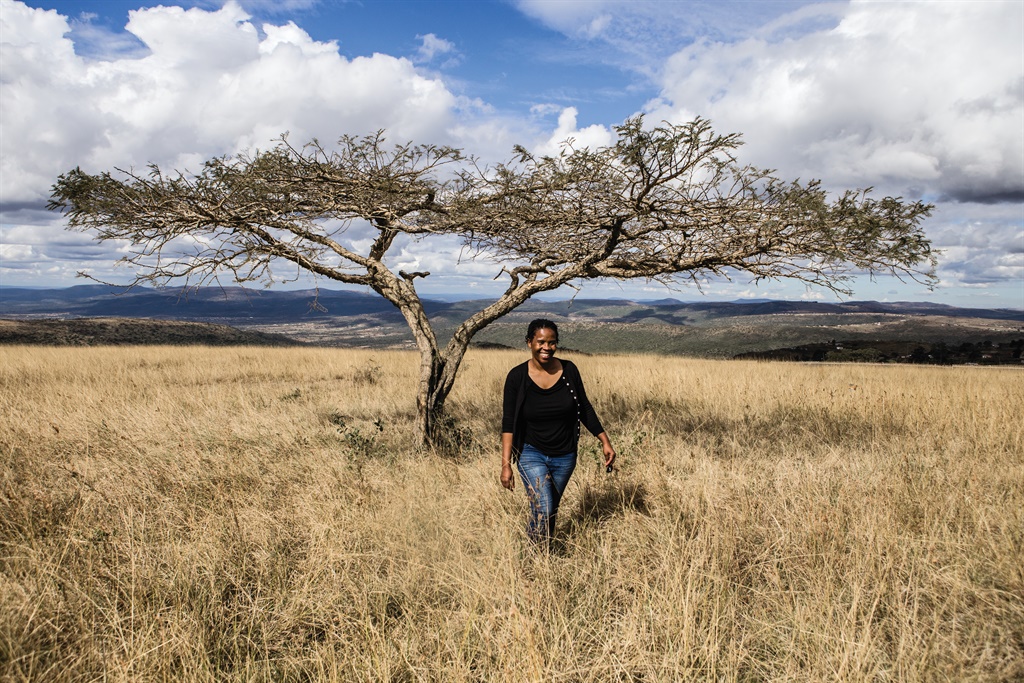Wine is considered to be one of SA’s best exports, yet its history and cultivation is marked by exploitation and racist practices. Decades after democracy, has the industry transformed? A new book called The Colour of Wine and an accompanying documentary by Akin Omotoso tracks the history of the beverage in the country and looks at a new breed of black winemakers. Grethe Kemp interviews the book's editor, Harriet Perlman.
Harriet, why this book and why now?
The Colour of Wine documentary film and the book were made possible with funding from the Kalipha Foundation of Mion Holdings. Directors Manana Nhlanhla and Sithembiso Mthethwa financed the film and came up with the idea to do an accompanying book.
Read book extracts here:
- Winemaker Ntsiki Biyela: Like climbing Table Mountain
- Sommelier Bongani Ngwenya: A Sommelier’s Journey
- From au pair to master winemaker
- Wine merchant Mnikelo Mangciphu: A Soweto wine merchant
- Wine producer Raymond Ndlovu - From stockbroker to wine producer
They are great wine enthusiasts and wanted us to tell a story that hadn’t been told before – the story of South Africa’s transition to democracy through the lens of the world of wine and the personal journeys of black winemakers.
For the film, we conducted extensive interviews with winemakers and wine owners, politicians, sommeliers, teachers, local and international wine enthusiasts, and converted and still to be converted beer drinkers.
We had hours and hours of interviews and stories that didn’t make it into the film, so it was very exciting to have the opportunity to reshape these and go back to them for the book. The purpose of the book is to offer a deeper and richer account of people’s stories, show fresh perspectives of the world of wine in predominantly the black community and give a detailed history of wine in South Africa that is different from the mainstream account.
So, from what you’ve learnt editing the book, would you say that our wine industry is transformed?
That’s a difficult question. I think lots needs to change, but many things already have. Land reform in the wine sector hasn’t fundamentally changed the racial profile of land reform. After 24 years of democracy, only 1% of Cape farms are owned by black people. The local wine industry needs to grow – we still export 50% of wine production. But it’s tough to survive in the wine industry.
Wine doyen John Platter points out that ‘more than half of its 3 200 grape growers are either already under water financially or on the knife edge of a derisory 1% return on investment’.
But many things have changed. New brands have been created by entrants to the wine industry. Black winemakers (in particular women), viticulturists, sommeliers and other industry players have invigorated South African wine. The face of South African wine is changing. For example, an exciting initiative called Black Cellar Club has grown in two years to over a few hundred members. They are bridging the wide gap between producers and the emerging black middle class with a focus on the extraordinary growth of young black sommeliers in the country.
This book is difficult to explain – on one hand, it’s a collection of profiles of emerging black winemakers; on the other, it’s a history lesson. And then it’s also a recipe book. What was the thinking behind its creation?
We wanted the book to appeal to a wide audience – seasoned wine drinkers as well as newcomers. We wanted a book that showed wine experts a new and fresh perspective, and, at the same time, introduced newcomers to an exciting world they may not know. It was meant to do just that – be a selection of different aspects of the world of wine; its history, personal stories and food.
We also brought in photographer Mark Lewis, whose photographs, together with images from Victor Dlamini, tell a beautiful visual story of the changing face of wine in the country. There is a thought-provoking and insightful essay by Platter that goes deeper into debates about South African wine alongside the story of Mnikelo Mangciphu, who owns Wine & Spirits Emporium, the only exclusive wine emporium in Soweto.
We included a section on food because you can’t talk about wine without food, and we want to encourage people to enjoy food and wine in new ways.
We were lucky to get a contribution from the fantastic Nompumelelo Mqwebu, who learnt to love food from her father, who worked as a cook on ships that travelled to far-flung places.
You recently launched the book at Skoobs in Montecasino, where some people featured in the book engaged in conversation with the audience. What were some of the biggest takeaways from the discussion at the launch?
Each time I hear winemaker Ntsiki Biyela and viticulturist Unathi Mantshongo’s stories, I am inspired by them. They navigated their journey at Stellenbosch University with such amazing tenacity, humour and courage, and have now crafted extraordinary and successful careers in the wine industry.
At the launch, we served wines made by Ntsiki, Carmen Stevens and Dumisani Mathonsi. Guests at the launch learnt their stories and then tasted the delicious wines. As Michael Fridjhon pointed out, we need education to grow the local wine industry. More books, more films, more wine events and more tastings will do just that.
How does Akin Omotoso’s documentary complement the book?
The book and film are like a good wine and food pairing – they complement each other perfectly. The film premiered at the Irep International Documentary Film Festival in Lagos, Nigeria, in March, and has been shown at other festivals and events in South Africa and beyond.
The film focuses primarily on the remarkable journeys of Biyela, Mantshongo, Mathonsi and Stevens, along with stories and anecdotes from other people in the wine sector. As a co-producer and co-writer on the film, and having worked on it for more than two years, I had a very deep understanding of the stories, and it was a great privilege to be able to reshape and deepen them in a book format.
- The Colour of Wine: Tasting Change, by Harriet Perlman, John Platter et al., photographs by Mark Lewis, R450, Orders: Booksite Afrika, email: orders@booksite-afrika.co.za
DOCUMENTARY REVIEW: A decent look at emerging black winemakers
Nigerian film director Akin Omotoso, known for the critically acclaimed Vaya, lends his skill to the book’s accompanying DVD. It features very passionate characters from wine houses, black and white, men and women, sharing their experiences of this adored beverage. Of course, they’ve included some intellectuals to participate as talking heads, including authors from New York and individuals who hold positions worthy of people asscociated with wine drinking.
Read: Successes and challenges of the SA wine industry: 3 Documentaries that take us beyond the barrel
The Colour of Wine involves lots of swirling and no shortage of button up shirts and discerning looks as the many characters recount their memories of Merlot and secrets of Syrah.
All this made me want to do is drink wine, which is a good thing. They touch on black people starting to enjoy this drink and how young people relate to it. This is nothing we don’t know, I hope you have noticed that we mostly drink beer and ciders in SA.
Omotoso did well to speak with so many people about wine and it is informative in parts. It was cool to see just how many black people have carved out a career for themselves in this field.
Omotoso is hands down one of the best local film directors in it and eventhough I didn’t enjoy this, he does execute the film well. I did feel like it needed more than the still images they have added here and there to break the monotony of the interviews - there’s alot of talking. Light re-enactments are a trend I wouldn’t ignore. Messing with the delivery of a story keeps the viewer engaged. Insert a dark cartoon to depict a story that one of the characters is talking about or clever skits. It works.
The history of local wine is worth knowing, it is something we are really good at creating and this is a clean-cut presentation. Omotoso does give us more than what a documentary requires even unpacking the murky history of KWV and the reintroduction of wine to the market after apartheid sanctions. What I thought was interesting was when the narrative moves towards the future of local wine and the idea that wine and local food should be thought of together more, much like Italian food and wine. I’d suggest having a glass of pinotage with this, and if you are not so clued up on the story behind local wine or you’re an enthusiast, this will be a decent watch. - Phumlani S Langa




 Publications
Publications
 Partners
Partners











